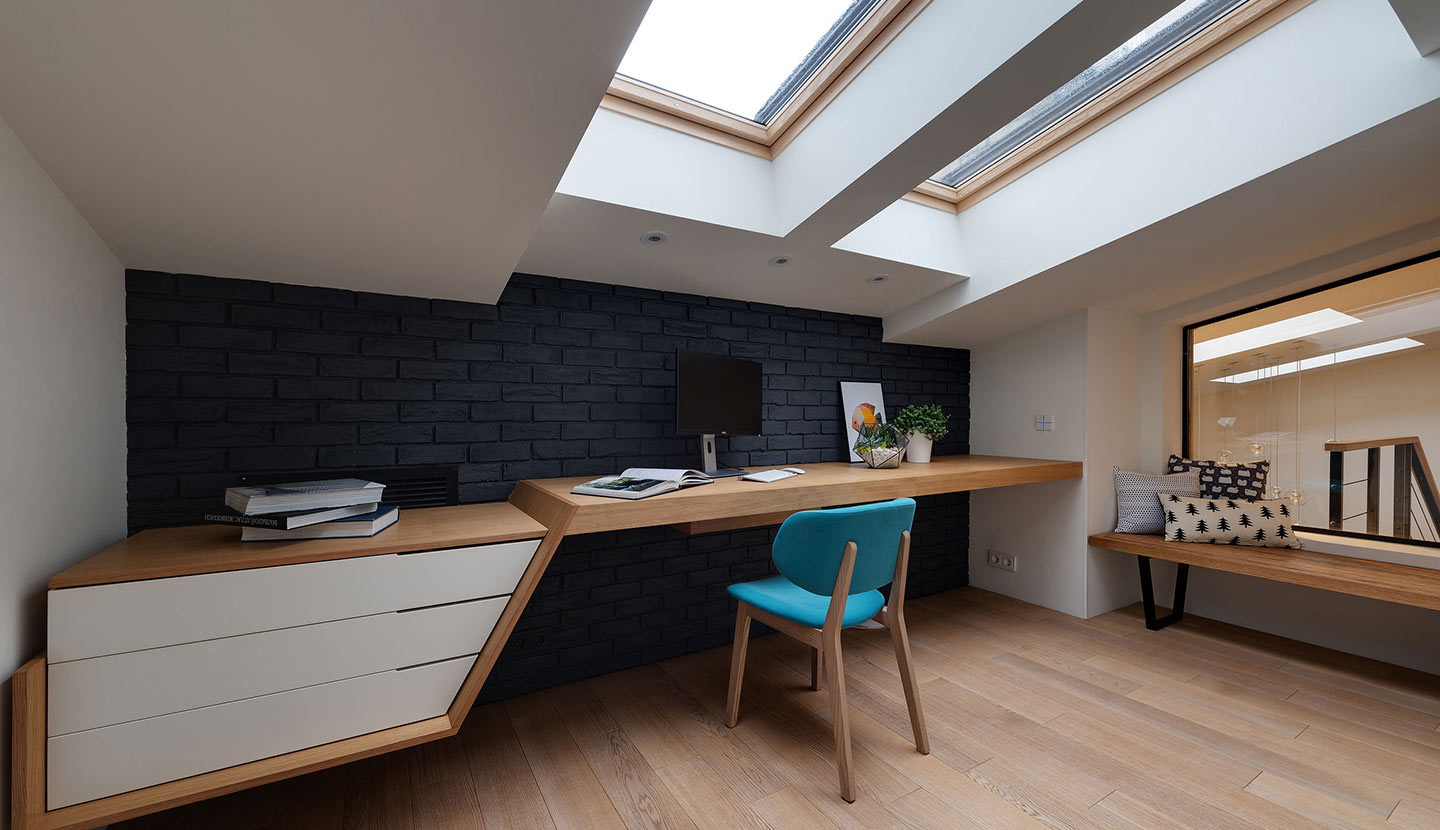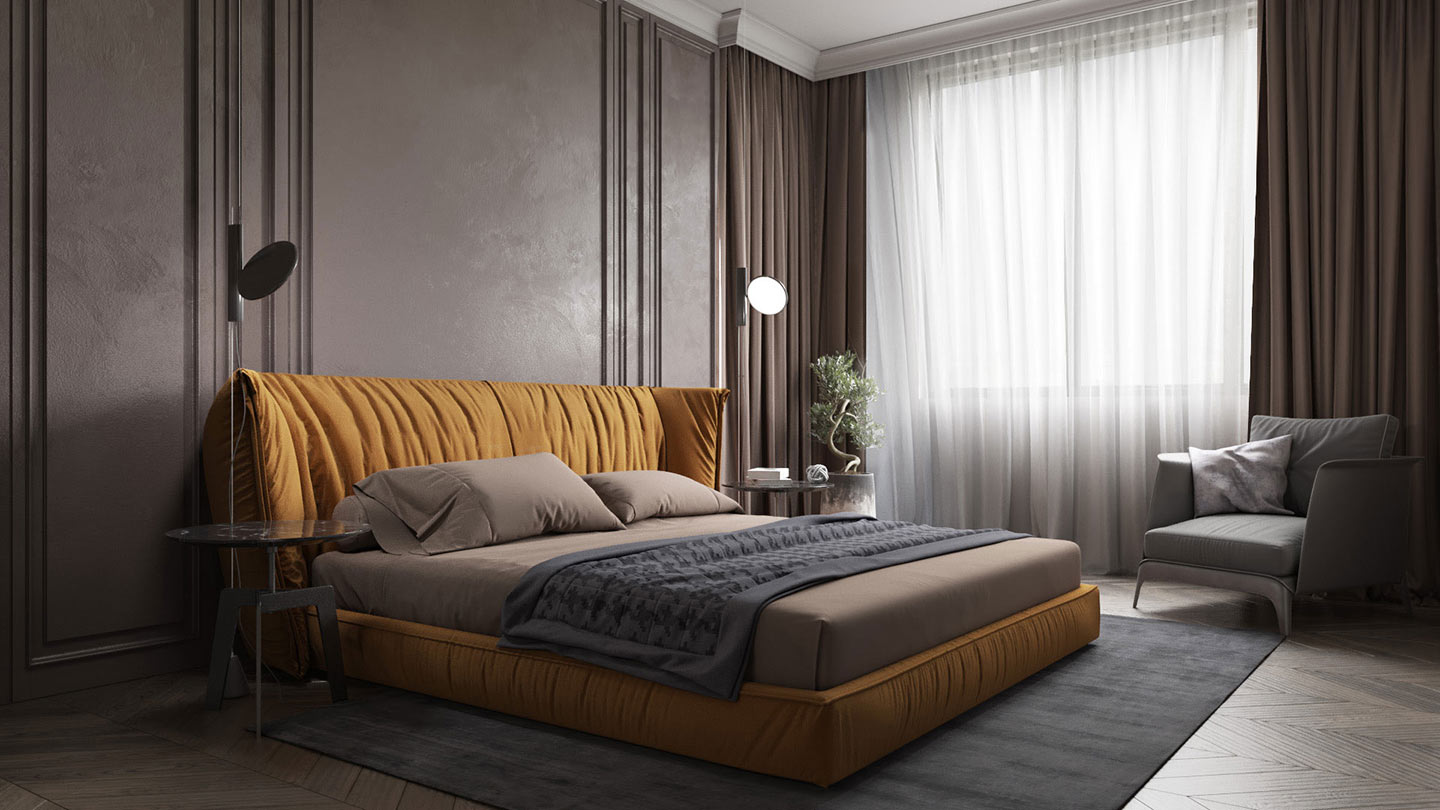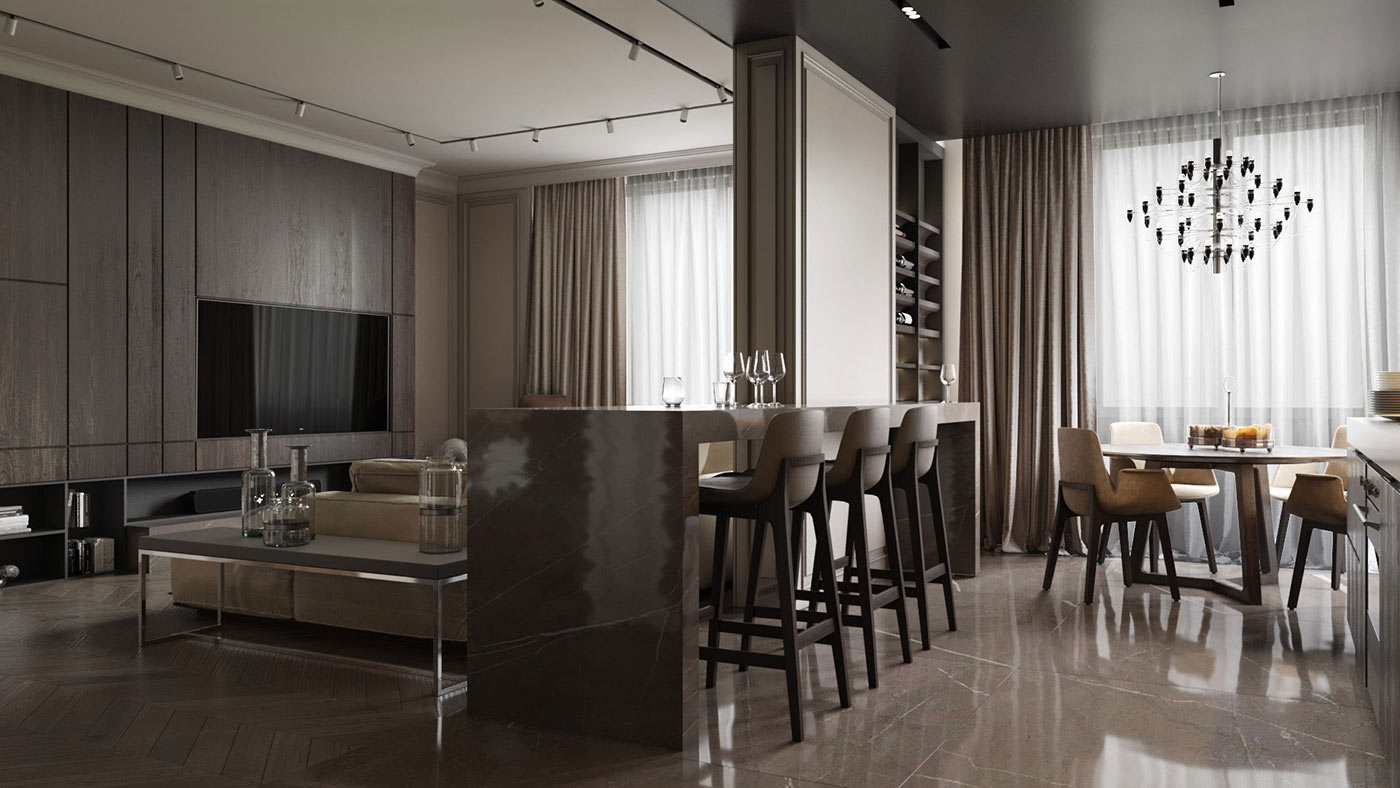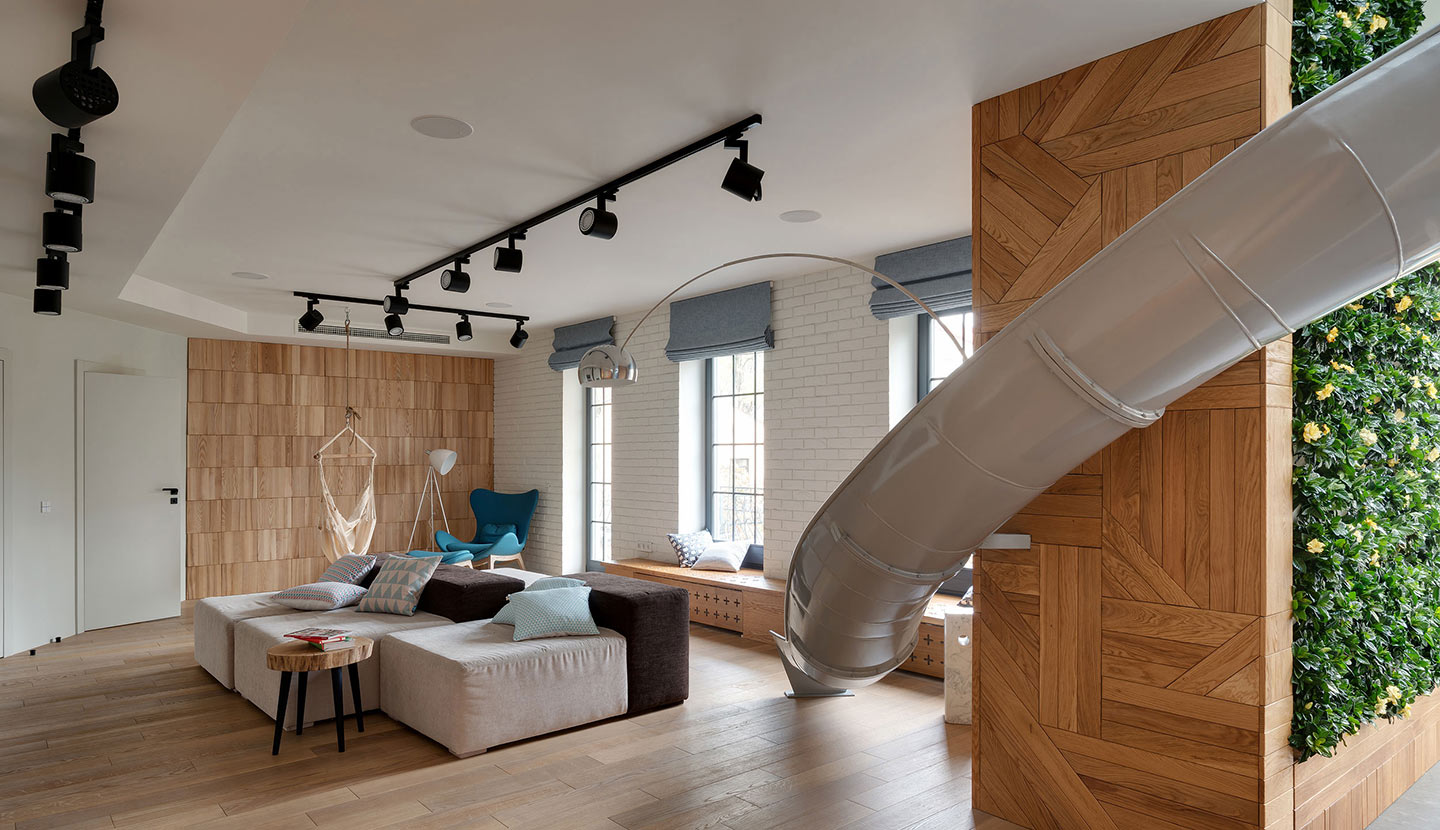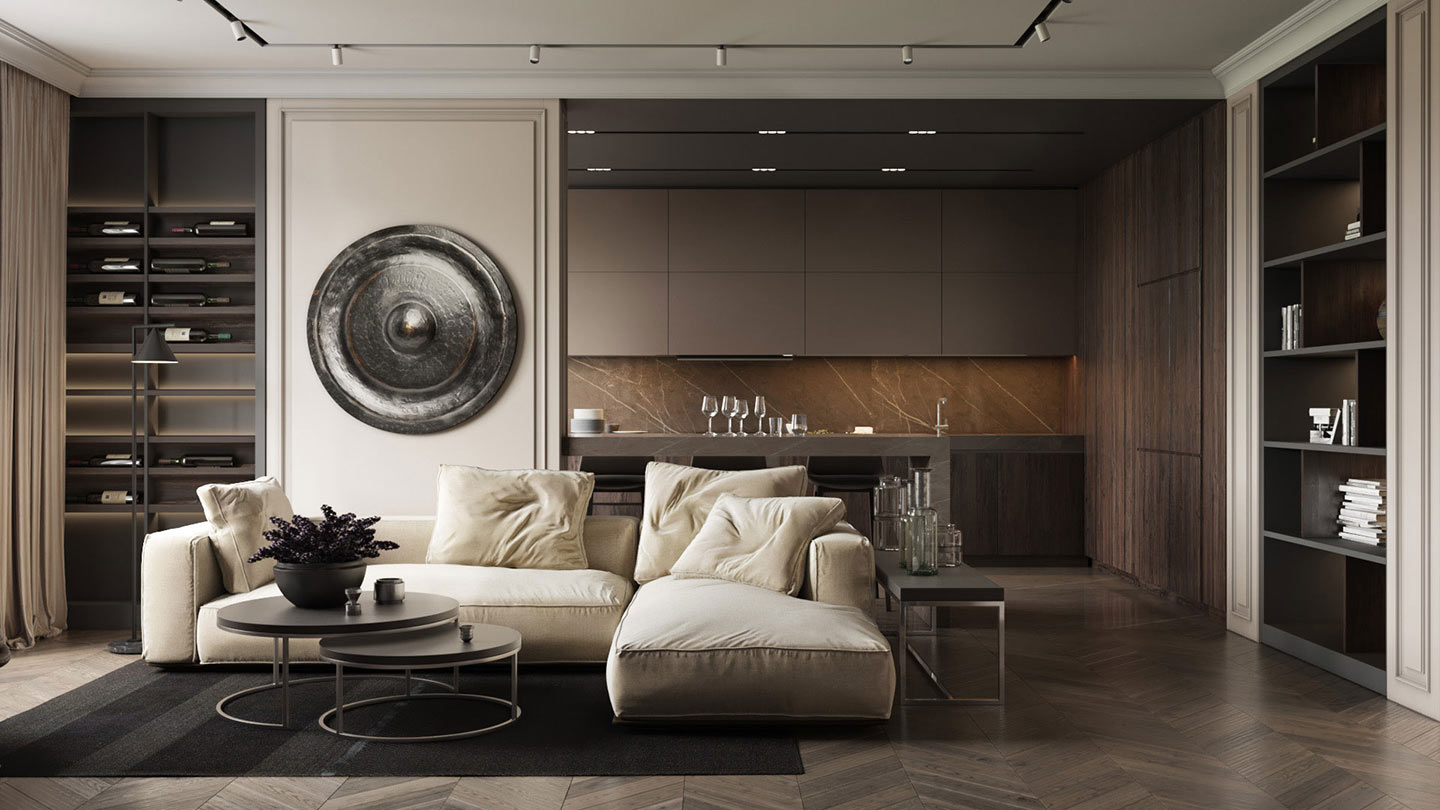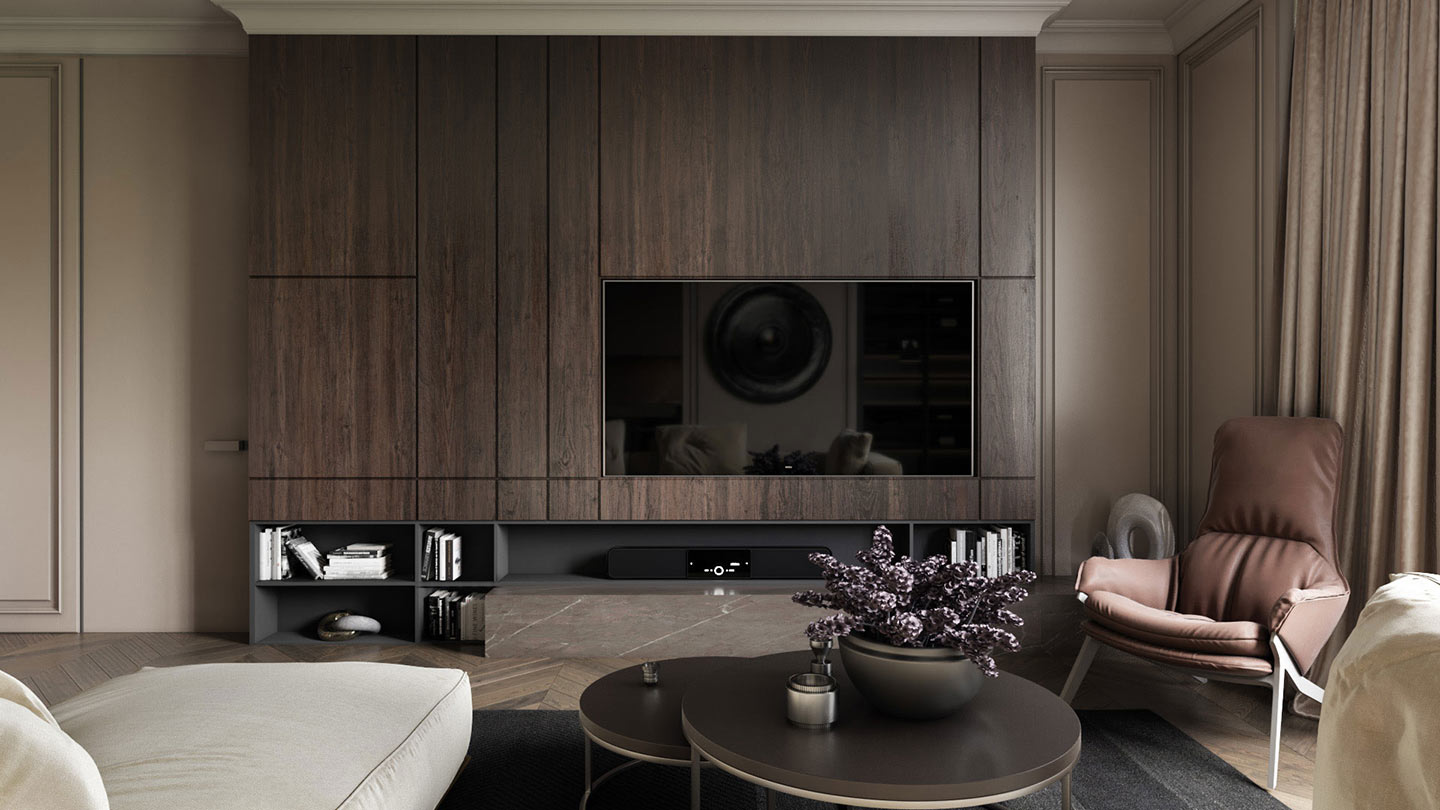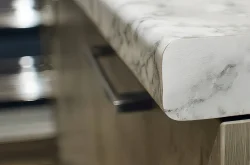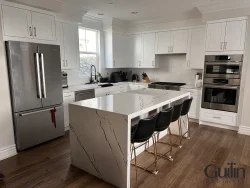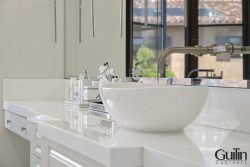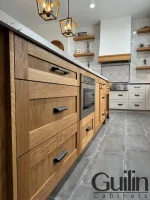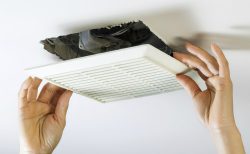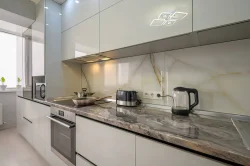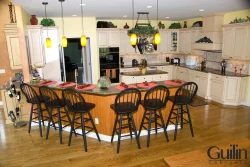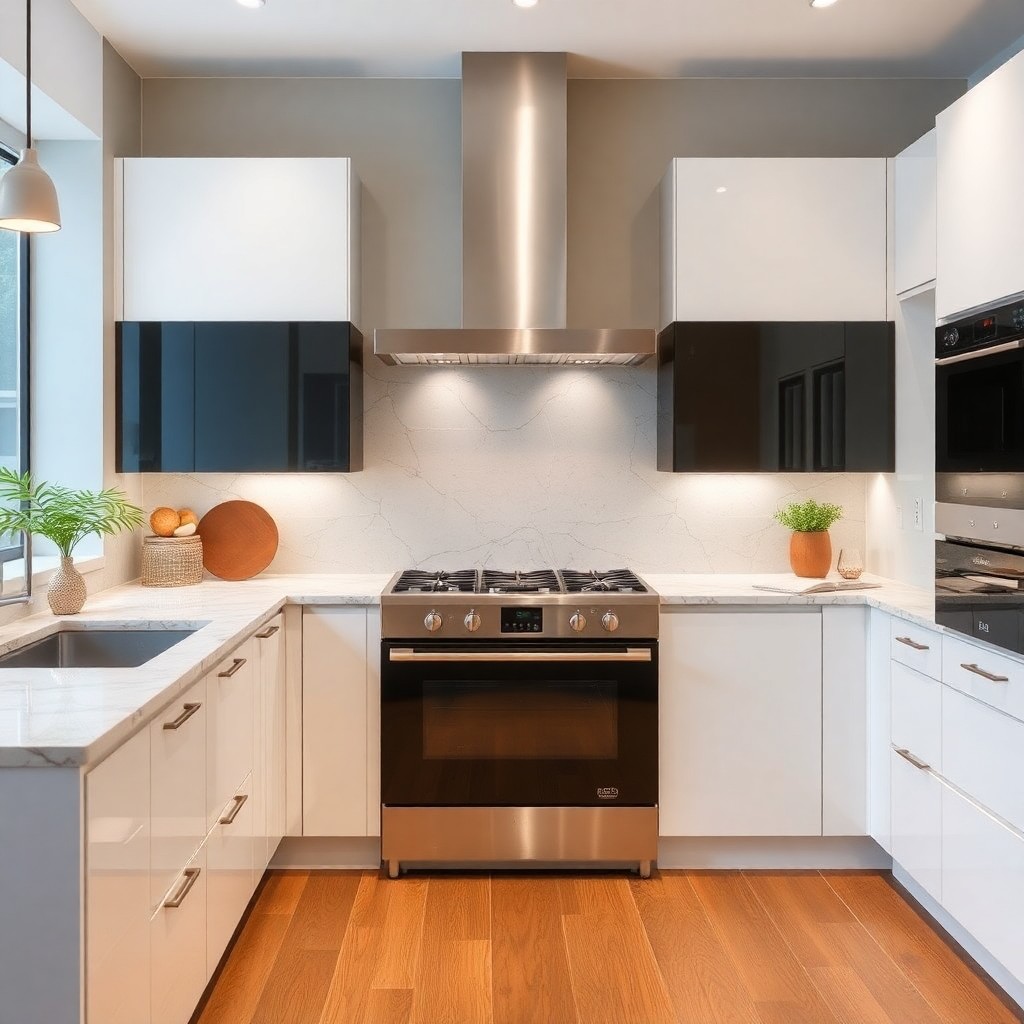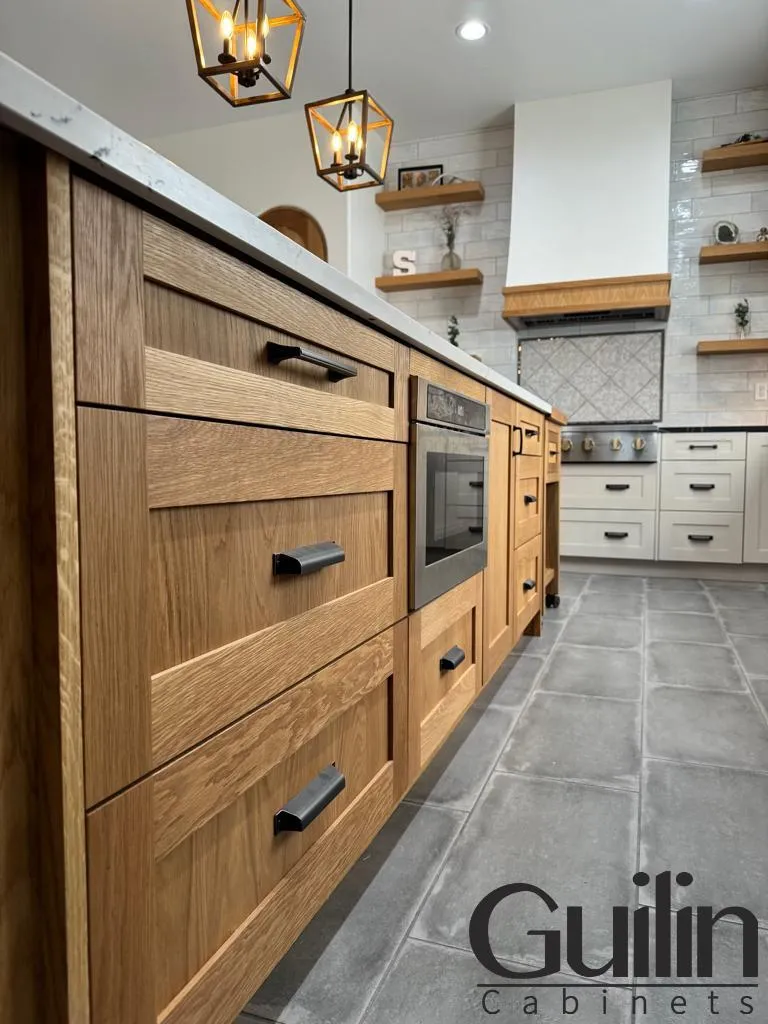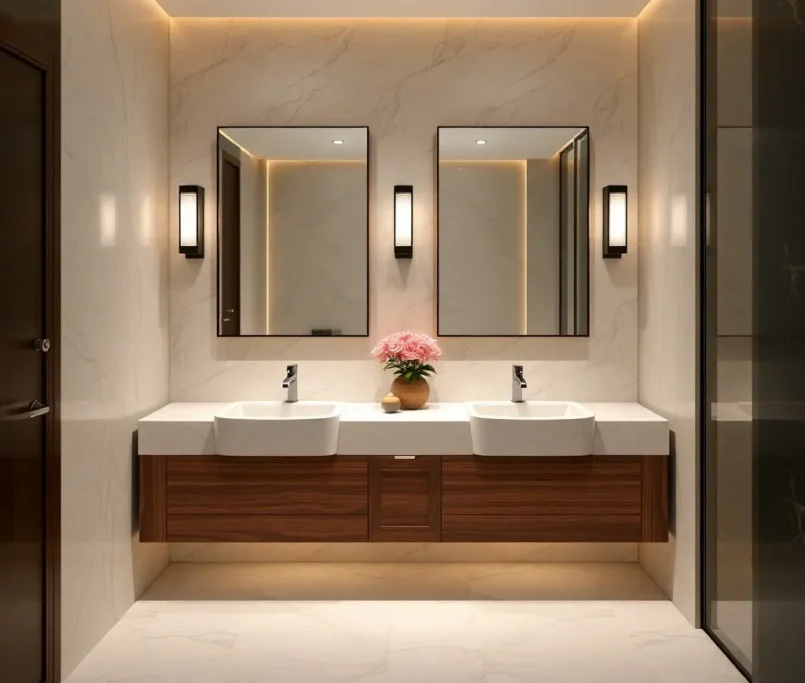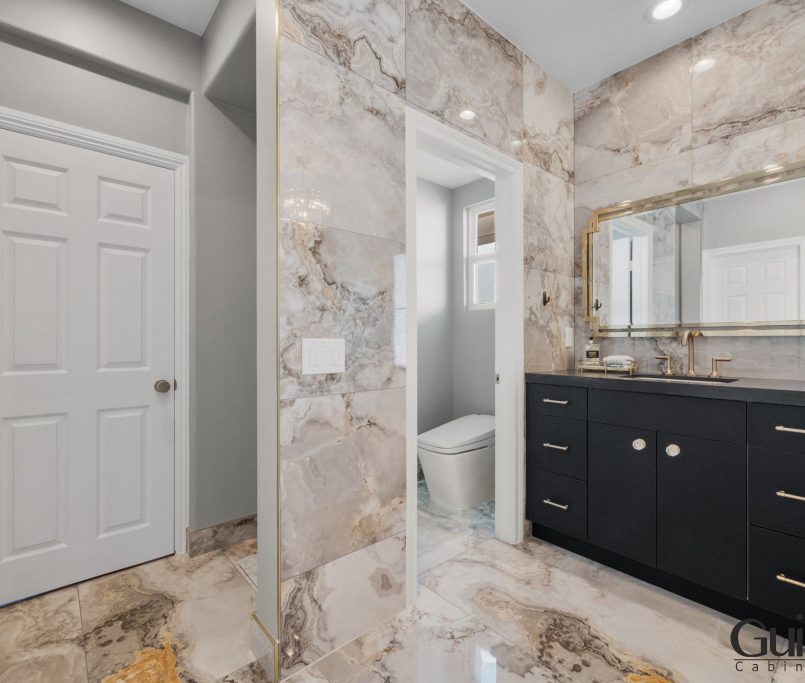It’s undeniable that the finish you choose for your granite surface greatly affects the space’s aesthetic and practical value. Your granite installation will be one-of-a-kind with any of the available surface finishes, which range from polished to honed, leathered to flame. If you want to make a smart choice, you need to know what each finish is good for and how to use it. In this piece, we will delve into the most common granite surface treatments and how they are used, giving you all the information you need to choose the perfect one for your project.
=> Related Article: Granite Backsplashes: Pros, Cons, and Options
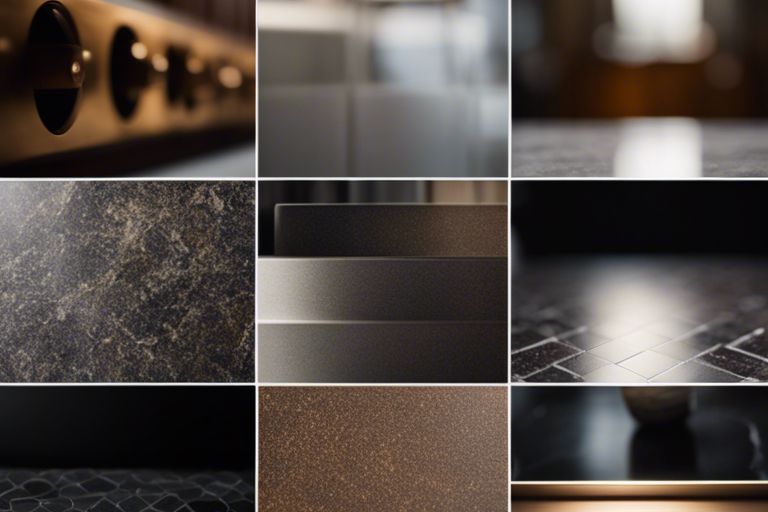
About Granite Finishes
The choice of granite finishes plays a significant role in enhancing the aesthetic appeal and functionality of your surfaces. A finish refers to the treatment applied to the stone, which can vary widely in appearance and texture. Understanding the different granite finishes is necessary to achieving the look and performance you desire for your countertops, floors, or other installations within your home.
Definition of Granite Finishes
Granite finishes are the various surface treatments applied to granite stone that alter its appearance and tactile qualities. Popular finishes include polished, honed, leathered, flamed, bush hammered, brushed, and lepatora. Each finish uses different techniques, such as grinding, buffing, or applying heat, to achieve a unique look and feel. For instance, a polished finish offers a glossy and reflective surface, while a honed finish results in a matte look, providing a softer aesthetic.
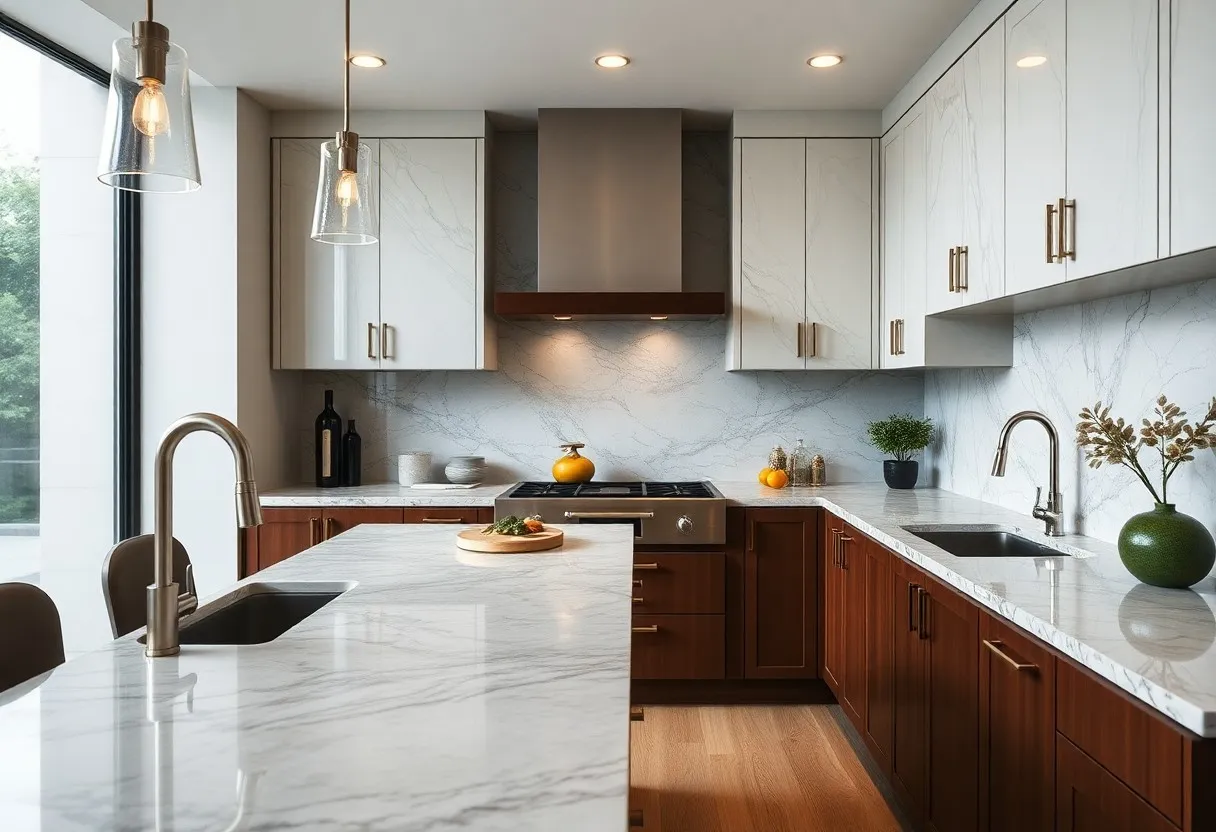
Importance of Choosing the Right Finish
Finishes not only dictate the overall style of your space but also contribute to the durability, maintenance needs, and suitability of the granite for specific environments. Choosing a finish that complements your design vision while ensuring practical functionality is necessary. For example, a polished finish may exhibit scratches and fingerprints, making it less ideal for high-traffic areas, whereas a leathered or bush hammered finish can offer greater resistance to wear and tear.

A thoughtful selection of granite finish can transform your space in terms of both beauty and usability. Investing time in understanding the pros and cons of each finish will help you make informed decisions, ensuring that your granite surfaces not only look stunning but also perform effectively in your everyday life.
7 Popular Granite Finishes: Pros, Cons
Polished Finish
The polished finish is the most common finish applied to granite surfaces. It aims to enhance the natural beauty of the stone, creating a mirror-like shine that exudes elegance and sophistication. This finish reveals the true color and charm of the granite, making it a popular choice for countertop and flooring surfaces. The process of achieving a polished finish involves grinding and buffing the stone surface using abrasive pads of varying grit levels. Starting at 50 grit and reaching up to 3,000 grit, the stones pass through a series of polishing wheels to attain the desired gloss.
=> Related Article: The Average Price of Different Countertops
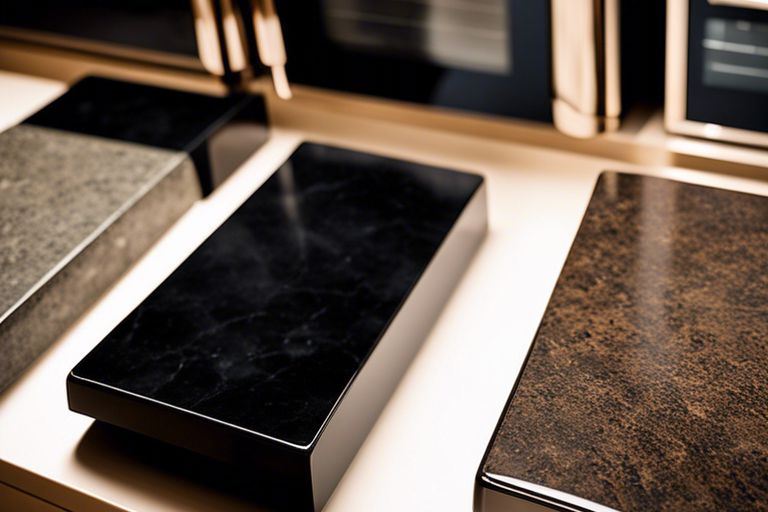
The high gloss of polished granite complements various interior styles, making it a versatile choice for a wide range of applications. That is an ideal choice for both residential and commercial spaces, polished finish granite countertops and floorings add a touch of luxury and sophistication to any environment. In homes, these surfaces elevate the overall aesthetic appeal, while in commercial settings, they exude professionalism and elegance.
Pros and Cons
| Pros | Cons |
|---|---|
| Reveals true color and charm | Can be more susceptible to scratches |
| High gloss and shine | Not as slip-resistant as other finishes |
| Easy to clean and maintain | May show water marks more visibly |
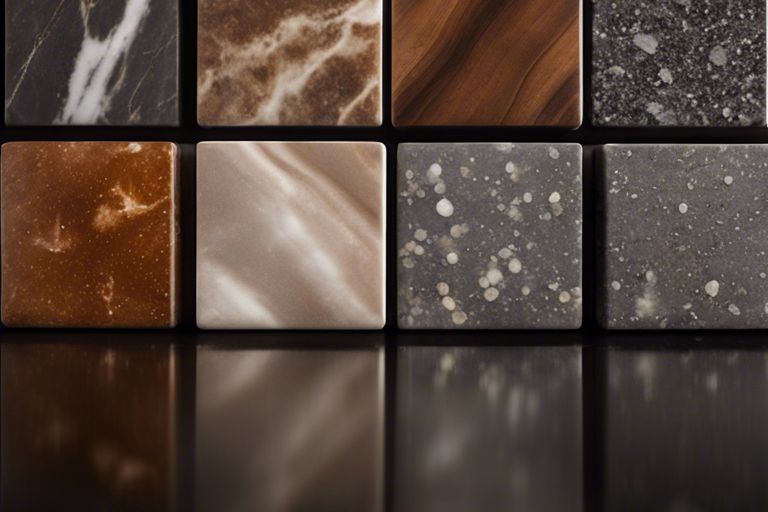
The advantages of a polished finish include its ability to showcase the true color and beauty of the granite, as well as its smooth and glossy appearance that adds elegance to any space. However, this finish may be more prone to showing scratches and fingerprints compared to other finishes.
Best Applications for Polished Finish
Finish products with a glossy polished surface are often ideal for areas where aesthetics and functionality need to meet. Polished granite countertops are popular in kitchens and bathrooms, where you not only want durability but also to create a statement piece that draws the eye. Similarly, polished granite flooring can add a touch of elegance to living areas and commercial spaces, contributing to a feel of luxury that enhances the overall environment.
Even in professional settings, polished granite countertops in reception areas or conference rooms send a clear message of sophistication and attention to detail. By selecting polished granite for your project, you’re making a choice that marries beauty with practicality, elevating your space significantly.
Honed Finish
A honed finish granite showcases a matte look, providing a calm and casual appeal to any space. This type of finish is less reflective compared to polished finishes, making it perfect for those seeking a more subdued appearance while maintaining the elegance of the stone.
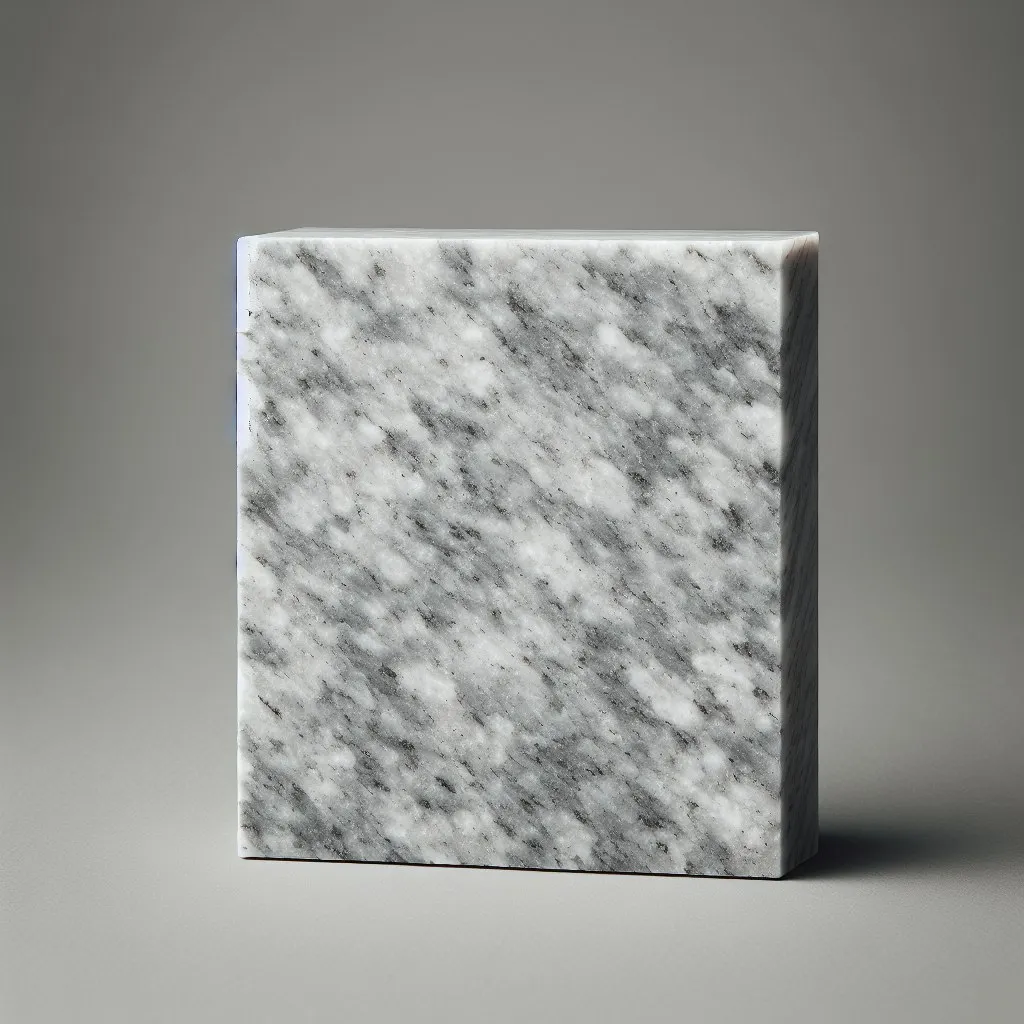
The appearance of honed finish granite is similar to that of matte or satin. With less reproduction and brightness than a polished finish, this surface treatment gives the impression of being less rigorous. While preserving the beautiful stone’s charm and character, a polished finish can give it an air of casual elegance. Unlike a polished finish, this one will not let the granite’s natural color and texture show through. Honed granite is a great option for backsplashes and countertops if you’re going for a more understated style.
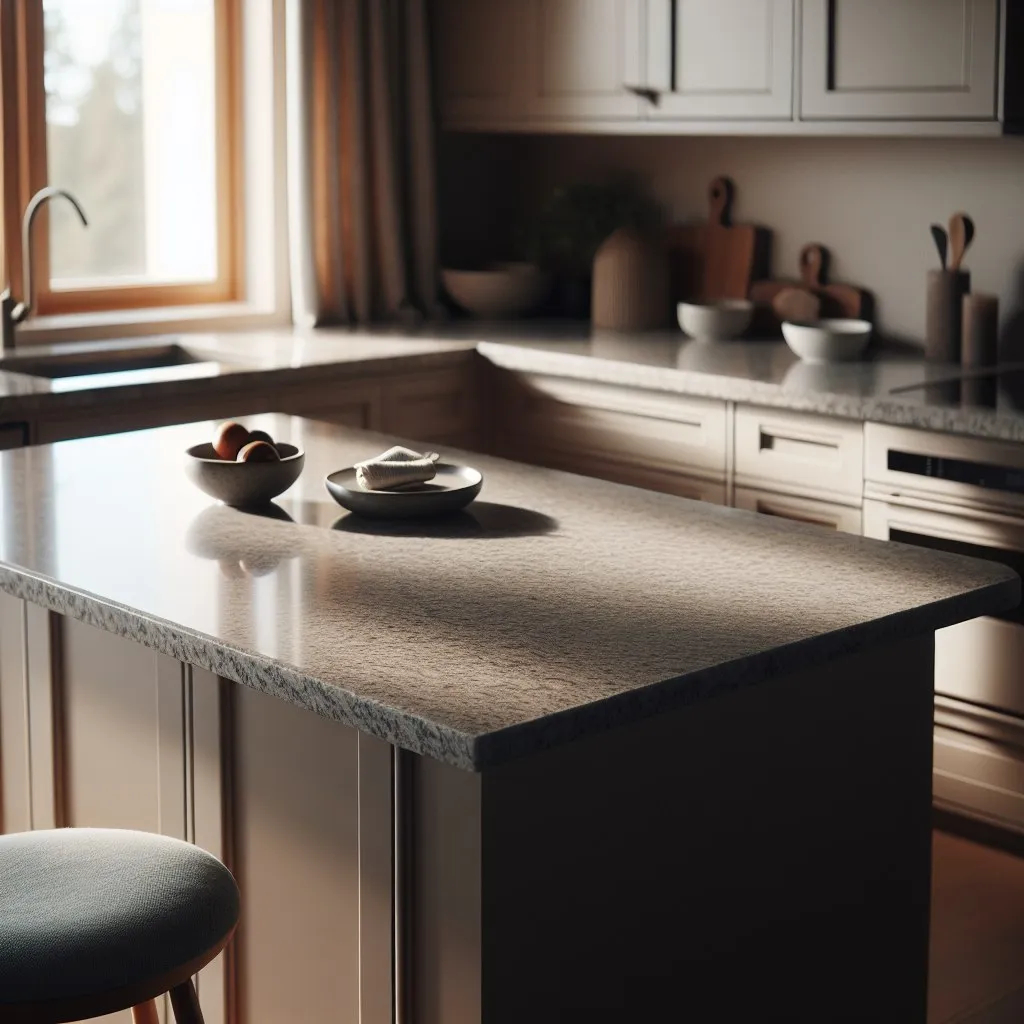
Pros and Cons
| Pros | Cons |
| Provides a smoother and workable finish for countertops | Less effective in moisture retention compared to polished finish |
| Capable of hiding flaws better due to less reflection | Reveals traces of wearing or traffic patterns on flooring |
Another advantage of a honed finish is its ability to offer a softer aesthetic while maintaining the durability and functionality of the granite. However, it’s important to consider the trade-offs in moisture resistance and visibility of wear and tear when opting for this finish.
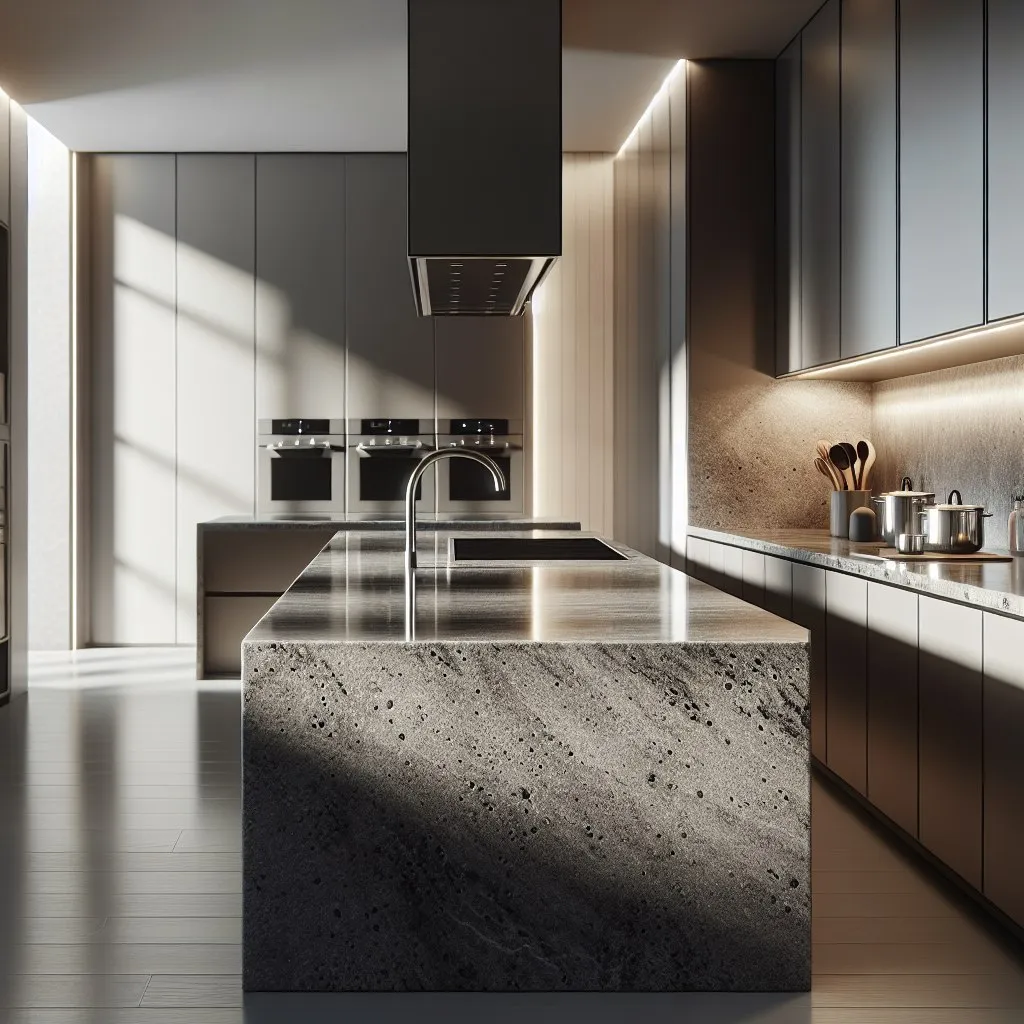
Best Applications for Honed Finish
Finish your areas with honed granite, particularly in spaces where a less glam and more inviting atmosphere is preferable. This finish makes an excellent choice for countertops, backsplashes, and flooring in kitchens and bathrooms, adding a touch of elegance without the worry of slipping or excessive maintenance. Its matte quality complements various design themes, from rustic to modern.
Honed granite surfaces can also be effectively utilized in outdoor kitchens or patios, given their non-reflective nature, which helps reduce glare. It’s practical for surfaces that might receive direct sunlight, enhancing your enjoyment of outdoor spaces without overstated shine distracting from the natural surroundings.
Leathered Finish
Leathered finish granite offers a subtle gloss, less than a polished finish, and includes a textured look. This finish provides a warm and rustic appeal to the stone surface, with varying textures from piece to piece. The leathered finish generally offers more resistance to stains, scratches, fingerprints, and smudges compared to other finishes.

The décor industry is quickly embracing this new granite surface treatment, which is relatively young compared to others. A rough appearance complements its mild sheen, which is lower than that of a polished one. Each natural stone will have its own unique texture, and some will have a more leather-like appearance than others.
Pros and Cons
Any granite finish has its own set of pros and cons. Here is a breakdown of the advantages and disadvantages of a leathered finish:
| Pros | Cons |
| Offers a warm and rustic appeal | Less glossy compared to polished finish |
| Provides more resistance to stains and scratches | May have varying textures from piece to piece |
To further elaborate, the leathered finish is ideal for those looking for a unique and textured appearance in their granite surface. While it may lack the high gloss of a polished finish, it makes up for it with its ability to resist stains and scratches better, thus offering a more practical solution for busy areas in a home or commercial space.
Best Applications for Leathered Finish
Consistently, the leathered finish is ideal for applications where both style and durability are necessary. This makes it perfect for kitchen countertops, where you want a surface that can withstand daily use while still looking elegant. It also performs well in bathroom vanities, giving you the luxurious feel of granite without the concerns associated with maintenance.
In addition, you may choose to use leathered granite in outdoor settings, particularly for patio countertops and barbeque islands, as its durability and textured surface can handle the elements more effectively than smoother finishes. The leathered finish can provide a rugged charm that complements outdoor aesthetics beautifully, enhancing your outdoor space while ensuring it remains functional.
Flamed Finish
A slightly uneven stone surface is the defining feature of this finish. Additionally, the finishing process lightens the stone finish to a certain extent, giving it a more weathered, natural, and lighter appearance. The name of this finish says it all: it’s made by subjecting the stone to a high-intensity flame, which makes it brittle and coarse. When a non-slip surface is needed in an outdoor setting, this finish is perfect.
Pros and Cons
There are some restrictions brought about by the flame treatment procedure, but the non-slip qualities make it perfect for usage outdoors. To help you make an educated decision for projects that need both design and function, we’ll go over the main benefits and downsides of this finish.

| Pros | Cons |
|---|---|
| Creates a slightly uneven stone surface | Stone can become brittle and coarse after the flaming process |
| Gives a more weathered and natural appearance | Lightens the stone finish, altering its original color |
| Provides a non-slip surface for outdoor use | Susceptible to chipping or damage due to the high-intensity flame |
Best Applications for Flamed Finish
About the best applications for a flamed finish, this type of granite shines in outdoor settings where safety, durability, and aesthetics are priorities. Given its non-slip nature, a flamed finish is especially suitable for areas that experience frequent moisture or foot traffic, such as driveways, walkways, and outdoor dining spaces.
This resistive quality makes it a fantastic option for commercial enterprises as well, from restaurants with patios to hotels with pool areas—all spaces where elegant design meets practical requirements. By choosing a flamed finish for your granite surfaces, you’ll not only enhance the visual appeal of your outdoor areas but also ensure a safe and durable environment.
Bush Hammered Finish
To get this look, the stone is pounded with a series of steel brushes, which can crack the surface and create holes. For exceptionally slip-resistant surfaces, bush-hammering is a technique similar to the flamed finish described earlier. It can also be used to recreate the appearance of a primitive polish, which was achieved by hand-chiseling the stone. The surface is gradually given a “time-worn” appearance by delicately brushing it with steel brushes.
Pros and Cons
| Pros | Cons |
|---|---|
| Provides exceptional slip resistance | Can create cracks and holes in the surface |
| Offers a “time-worn” appearance | Surface may appear less polished compared to other finishes |
| Recreates the appearance of primitive hand-chiseled stone | Requires delicate brushing with steel brushes |
| Can be used for achieving various aesthetic looks | May require more maintenance to upkeep its appearance over time |
Best Applications for Bush Hammered Finish
An ideal application for bush hammered granite is in outdoor settings, such as patios, walkways, and pool decks. Its slip-resistant nature allows you to create safe and stylish spaces for entertaining or daily use, making it a popular choice among homeowners and designers alike. Additionally, this finish can be very effective in commercial environments, such as retail or restaurant spaces, where durability and safety are crucial.
A great advantage of this finish is its versatility. While it shines in outdoor applications, it can also add a unique touch to indoor spaces, particularly in industrial or rustic-themed interiors. The textured surface can serve as a statement piece that captivates attention while ensuring practicality in high-traffic areas.
Brushed Finish
Textured surface Gently stroking the surface until it becomes rough is the process that produces granite. Brushing makes granite stones with this finish more porous than polished granite because of the application of the technique. A brushed finish, like an honed one, dulls the granite’s natural hue. Granite with a brushed finish can hide normal wear and tear marks like scratches and blemishes.
Pros and Cons
| Pros | Cons |
|---|---|
| Textured surface | More porous than polished granite, potentially more susceptible to stains and moisture |
| Hides wear and tear marks | Dulls the natural hue of granite |
| Can provide a rustic aesthetic |
Lepatora Finish
It is well-known that the term “Lepatora” originated in Italy. An abrasive is used to scrape the granite surface in order to remove the polish and achieve the Lepatora finish. After that, different stone abrasives are used to remove any scratches from the stone. A variety of stone brushes numbered 26, 60, 80, 120, 240, 320, and 500 are subsequently employed for the leather finish. The final stone finish is a combination of matte and glossy, with less shine, and is achieved with the use of three additional special stones with the numbers 800, 1500, and 3000. The granular worn-out appearance of lepatora finish granite is both highly fashionable and authentic. The surface is easy to clean and won’t cause any slips.
Pros and Cons
| Pros | Cons |
|---|---|
| Authentic and fashionable appearance with a granular, worn-out look | Requires a multi-step process involving abrasives and stone brushes |
| Combination of matte and glossy finish | May not be as resistant to scratches and wear as other finishes |
| Surface is easy to clean and maintain | Less shine compared to other finishes |
| Provides a textured surface that is less prone to slips and falls |
Final Words / Conclusion
Ultimately, selecting the right granite finish for your cabinets involves a deep understanding of the distinct characteristics and applications of each finish. Whether you are drawn to the luxurious look of polished granite, the understated elegance of a honed finish, or the rustic charm of leathered or flamed finishes, knowing the pros and cons will empower you to make a decision that enhances your space while meeting your practical needs. Your choice can significantly alter the aesthetic and functional qualities of your kitchen or bathroom, ensuring that your cabinets not only reflect your personal style but also stand the test of time.
FAQs About Granite Finishes
What are the most common granite finishes used in cabinetry and countertops?

The most common granite finishes include polished, honed, leathered, flamed, bush hammered, brushed, and Lepatora. Each finish offers unique aesthetic and practical characteristics, making them suitable for different applications in cabinetry and countertops.
What are the advantages of a polished granite finish?
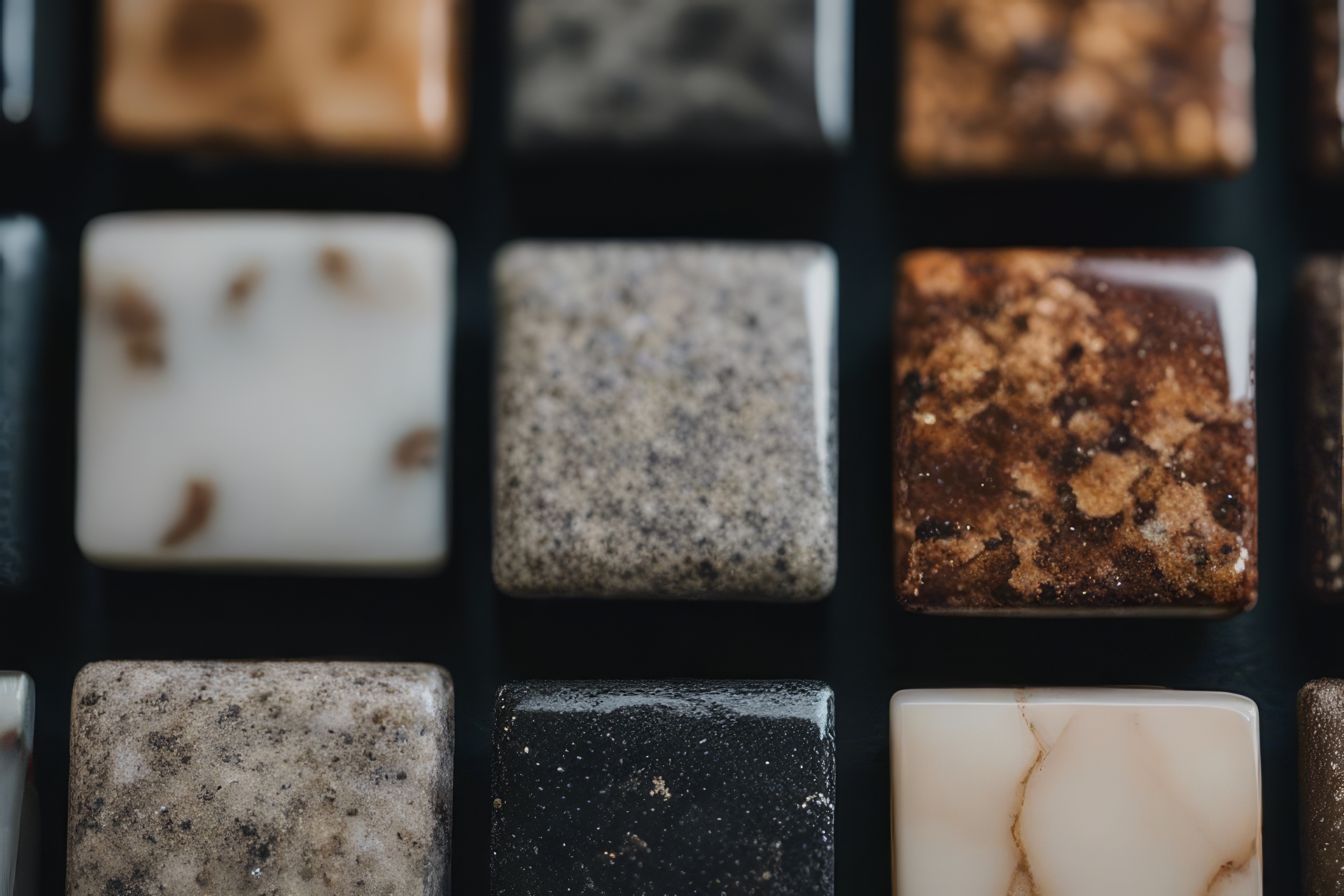
Polished granite finish provides a high gloss, enhancing the natural colors and beauty of the stone. It is ideal for creating an elegant and luxurious appearance in both residential and commercial spaces. However, it may show scratches and fingerprints more easily than other finishes.
How does a honed finish differ from a polished finish?
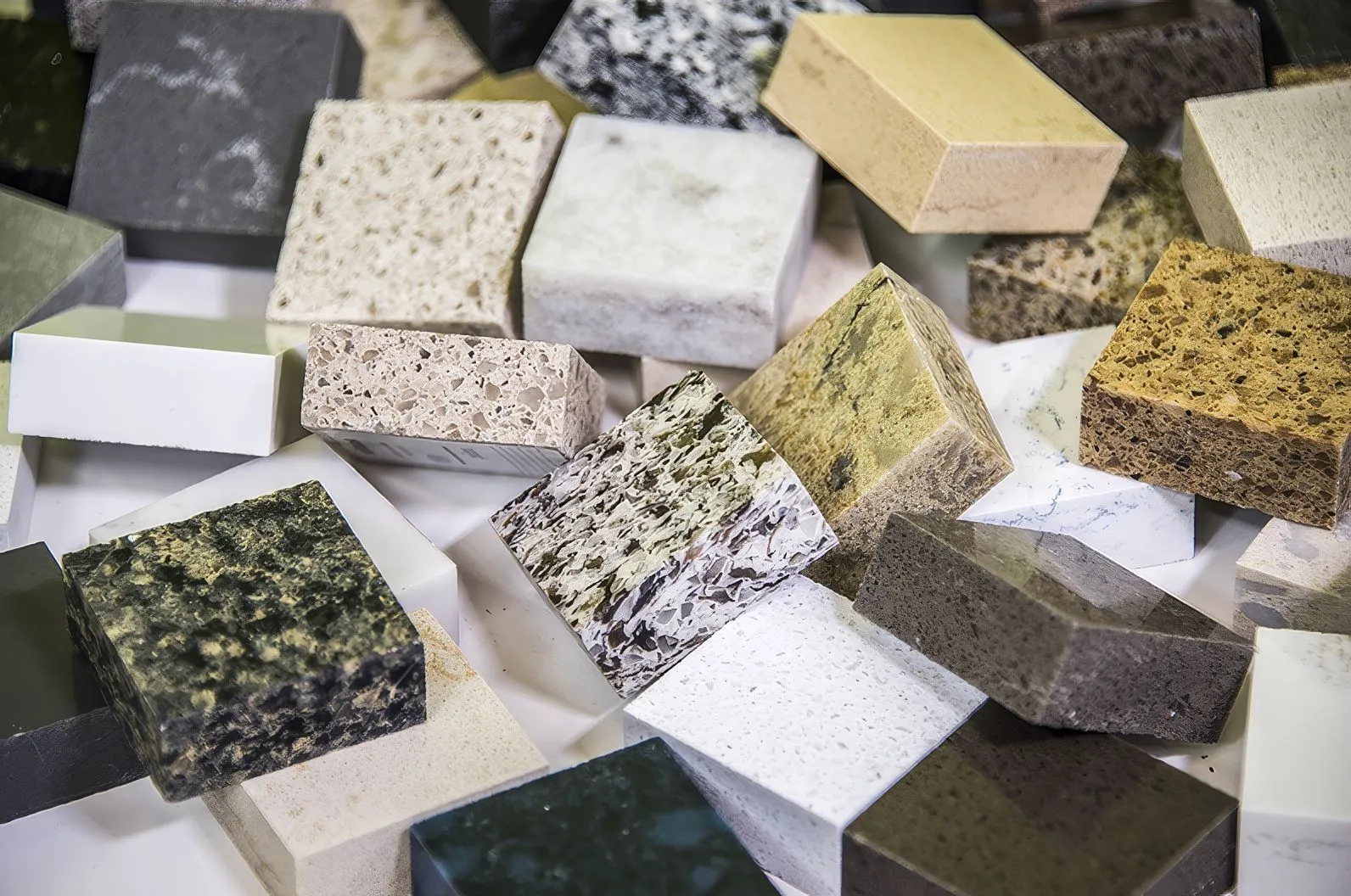
A honed finish offers a matte appearance and a softer, more casual aesthetic compared to the high gloss of a polished finish. While it maintains the elegance of the stone, honed granite is less reflective and can hide minor scratches better, but it may not be as moisture-resistant.
What is a leathered finish and why is it becoming popular?
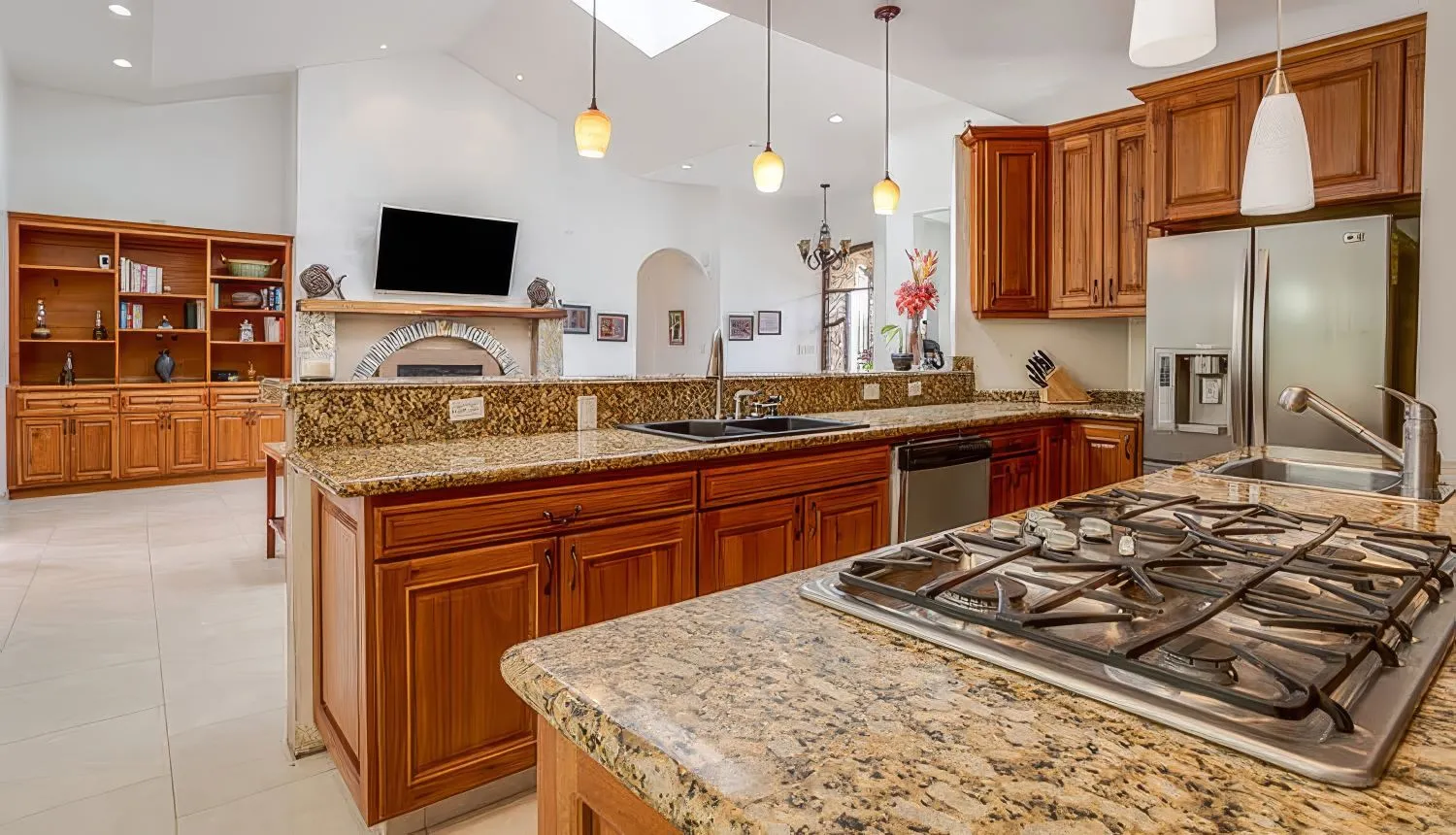
A leathered finish presents a textured surface with a subtle sheen, offering a warm and rustic appeal. It is gaining popularity due to its unique look and greater resistance to stains and scratches, making it practical for high-traffic areas in homes and commercial spaces.
When is a flamed finish recommended for granite surfaces?

A flamed finish is recommended when a non-slip surface is required, particularly for outdoor applications. This finish gives the stone a weathered and natural appearance, making it an excellent choice for patios or poolside areas.
What are the benefits of a bush hammered finish?

The bush hammered finish creates an exceptionally slip-resistant surface, making it suitable for outdoor areas or environments where safety is a concern. It also adds a unique, textured aesthetic that can enhance the overall design of a space.
What should I consider when choosing a granite finish for my cabinets and countertops?

When choosing a granite finish, consider factors such as the desired aesthetic, the area of application (kitchens vs. bathrooms), maintenance requirements, and the level of durability you need. Each finish has its own pros and cons, so it’s important to select one that aligns with your functional and visual preferences.


